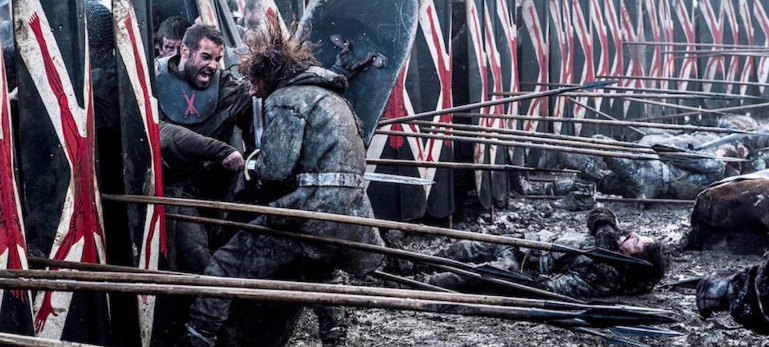I just discovered The Armchair Historian, a rather endearing YouTuber who created an animated history lesson about why armies used to stand in lines and kill each other. It seems counterintuitive now that we have weapons designed to kill large quantities of people and traditional wars between nations have given way to asymmetrical conflicts.
According to our friendly historian here, there were three main reasons armies used this battlefield formation up until the 20th century:
Griffin Johnsen (The Armchair Historian himself) narrates the video and summarizes the effectiveness of line formations succinctly. They were influenced by cavalry, order and communication, and the tactics of the enemy. As warfare technology advanced, so, too, did battlefield tactics. One example Johnson gives is how horses influenced warfighting.
Cavalry was effective against infantry, so the line formation was adopted to defend against cavalry. Once munitions became more accurate and lethal, cavalry became less effective… and the evolution continued.
Line formation warfare was developed during antiquity and used most notably in the Middle Ages, the Napoleonic Wars, and the Battle of the Bastards Battle of Cannae. It was seen as late as the First World War before giving way to trench warfare and specialized units with increased firepower and weaponry.
“Despite the prolific casualties suffered by units in close order formations during the start of the First World War, it should still be understood how effective line formations were in their heyday,” narrates Johnsen.
But seriously, can we talk about the Battle of the Bastards? Geek & Sundry broke down the tactics displayed (omitting the tactics not displayed — SERPENTINE, RICKON, SERPENTINE!!!) in what is arguably one of the most riveting Game of Thrones episodes created.
The Boltons’ tactic of using Romanesque scutums to surround the Stark forces was unnerving and would have delivered a crushing victory without the intervention of the Knights of the Vale.
The probable Bolton trap of allowing the appearance of an escape path (in this case…a mountain of bodies — talk about PSYOPS) effectively tempted their enemy to break formation.
Even commanding archers to volley their arrows into the fray of the battle was a gangster move; it killed Bolton’s own men, but for a man who believes in the ends justifying the means… it was a very lethal means to an end.
This article originally appeared on We Are The Mighty
More From We Are The Mighty
5 Reasons Why Troops Stick Together After the Military
4 Reasons Why Showering On Deployment is Disgusting
7 of the Greatest Songs Every Veteran Knows
6 Things You’d Take Back Before Leaving the Military
6 Dumb Things Veterans Lie About on the Internet
Follow We Are The Mighty on Twitter
READ NEXT: THE U.S. ONCE TRIED TO MAKE A FLYING JEEP



